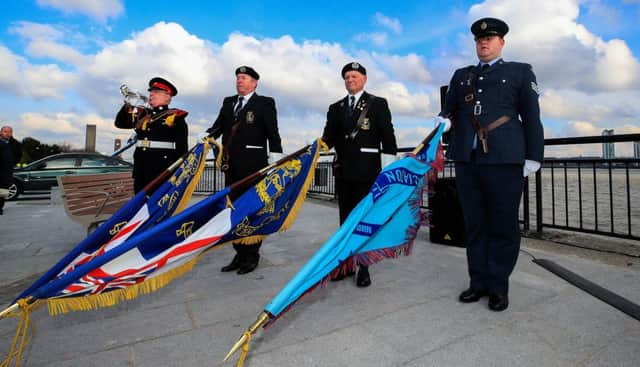Dunkirk pilot who ditched in Channel is honoured


The film does not name the RAF flyer, though his identity is known, and yesterday a riverfront memorial was unveiled in his honour. Jack Potter’s family and friends, including his son, Robert, travelled from as far afield as Australia for a service at Seacombe Promenade on the Wirral in Merseyside – a stretch of which has been renamed Jack Potter Walk.
Sgt Potter took part in the rescue of 200 service personnel from HMS Basilisk when it was sunk by German aircraft during the 1940 evacuation.
Advertisement
Hide AdAdvertisement
Hide AdCouncillor Jerry Williams, Wirral Council’s “heritage champion”, who traced Mr Potter’s family, said: “At Dunkirk, he destroyed a Messerchmitt. Less than a week later, his engine seized 15 miles from the English coast and he ditched into the sea, later being picked up and landed at Dover.” During the Battle of Britain, Sgt Potter ditched into the Channel again, was picked up by a German vessel and spent the rest of his war in a PoW camp.
Separately, a replacement for a weather-damaged memorial to the crew of an RAF bomber shot down near Brafferton in North Yorkshire in 1945 will be unveiled next month on the 73rd anniversary of the incident.
The Halifax bomber was hit by a German fighter and its crew of seven, all but one of whom were Canadian, were killed.